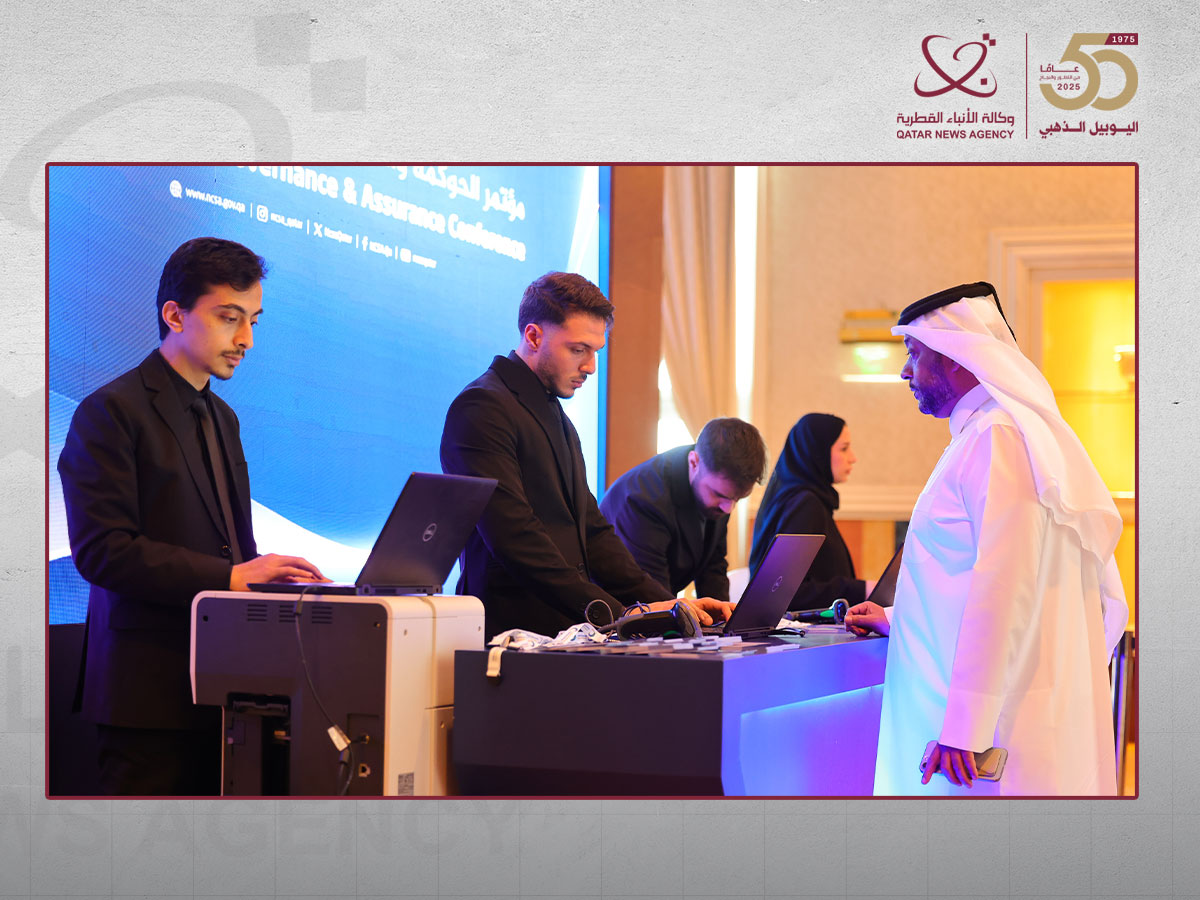
Doha, September 29 (QNA) – Under the patronage of HE Prime Minister and Minister of Foreign Affairs Sheikh Mohammed bin Abdulrahman bin Jassim Al-Thani, the National Cybersecurity Agency (NCSA) on Monday inaugurated the 4th Annual Cyber Governance and Assurance Conference, in the presence of several of Their Excellencies the ministers, senior officials, and representatives of government entities, private companies, and cybersecurity service providers.The two-day conference is held under the theme “Navigating the Cyber Horizon: Resilience through Preparedness and Innovation.”During the opening, NCSA launched the National Cyber Crisis Management Framework and the National Institutional Framework for Cyber Crisis Management, aimed at enhancing the security and resilience of Qatar’s cyber ecosystem. The frameworks are designed to manage cyber crises at the national level in coordination with relevant authorities, mitigate their impact, ensure rapid response and recovery, and guarantee the continuity of vital services. These initiatives reflect NCSA’s commitment to implementing projects under the Third National Strategy and the National Cybersecurity Strategy 2024-2030.HE NCSA President Eng. Abdulrahman bin Ali Al Farahid Al Malki said the conference provides a rich platform for exchanging expertise and exploring the latest global trends in specialized cybersecurity fields.His Excellency announced the signing of a Professorship Chair agreement between NCSA and Doha University of Science and Technology (UDST), aimed at promoting knowledge transfer, advancing education and research, and adopting best practices in cybersecurity, particularly in protecting critical technological infrastructure and operational technology.HE Al Malki also announced NCSA’s accession to the Security Compliance Institute of the International Society for Automation (ISA), which will strengthen international cooperation in the field of cybersecurity.He stressed that the Agency recognized early on that achieving strategic objectives depends on capacity building, developing national competencies, and empowering them with specialized training and knowledge tools. This, he said, ensures the sustainability of Qatar’s cybersecurity system and enhances its readiness to confront emerging threats.His Excellency emphasized that analyzing challenges and opportunities, and anticipating the future of cyberspace, requires building national capabilities that enhance resilience and stability in the digital environment, invest in innovation and training, and foster strong partnerships between the public and private sectors. This, he added, ensures the protection of vital assets, reinforces confidence in technological infrastructure, and supports Qatar’s leadership in a secure and reliable cyberspace.For her part, Eng. Dana Yousef Al Abdullah, Director of Policy Affairs at NCSA, delivered a comprehensive presentation on the cybersecurity landscape in Qatar, highlighting key current realities and future trends shaping the sector.Mohammed Murshid Al Mannai, Director of the Cyber Resilience, Risk, and Insurance Department, presented on the National Cyber Crisis Management Framework and the National Institutional Framework for Cyber Crisis Management, outlining their role in strengthening national readiness and resilience.During the conference, HE the NCSA President honored several entities that obtained accreditation and compliance certificates for the National Information Assurance Standard. In addition, Duncan Hill, British Deputy Ambassador to Qatar, honored companies graduating from the CREST Development Program, which aims to accelerate the maturity of companies in delivering cybersecurity services.The conference also witnessed the signing of a Professorship Chair agreement in cybersecurity between NCSA and Doha University of Science and Technology (UDST). This strategic cooperation forms part of national efforts to promote scientific research and academic innovation, and to develop national competencies capable of addressing the growing challenges of cyberspace.The agreement includes the allocation of a Professorship Chair within UDST’s College of Computing and Information Technology, sponsored by NCSA and managed by the university. The Professorship Chair will encompass teaching a cybersecurity course, supervising research projects, and delivering research seminars for industry partners and the wider community.The first day featured four panel sessions covering the institutional framework for cyber crisis management, certified technologies and supply chain advantages for enterprises, the cybersecurity “trilogy” of government, industry, and community partnerships, and compliance and assurance certifications for cloud computing.It also included three workshops on national strategy collaboration and open dialogue, adoption of the National Information Assurance Standard for cybersecurity officers in government agencies, and the AI-powered “Capture the Flag” challenge in partnership with Scale AI.On the second day, the National Cyber Security Agency, in cooperation with Qatar Development Bank, will launch the Cyber Prerequisites Program for SMEs. The initiative aims to support Qatari small and medium enterprises in enhancing their compliance with basic cybersecurity controls, tailored to the nature and scope of their operations. It forms part of NCSA’s wider efforts to strengthen the cybersecurity capabilities of local businesses.The program will be accompanied by three panel sessions addressing the challenges and opportunities of the Cyber Prerequisites Program for SMEs, the intersection of artificial intelligence, industrial security, and privacy in the post-quantum era, with a focus on the role of policies and regulations, and the integration of the National Cyber Crisis Management Framework with the National Incident Management Framework.In addition, two technical presentations will be delivered on Global Navigation Satellite System (GNSS) security and the use of artificial intelligence to enhance cyber resilience. A debate will also examine the integration of cybersecurity with information technology (IT) and operational technology (OT).The program will conclude with four specialized workshops covering a range of advanced cybersecurity topics. (QNA)



